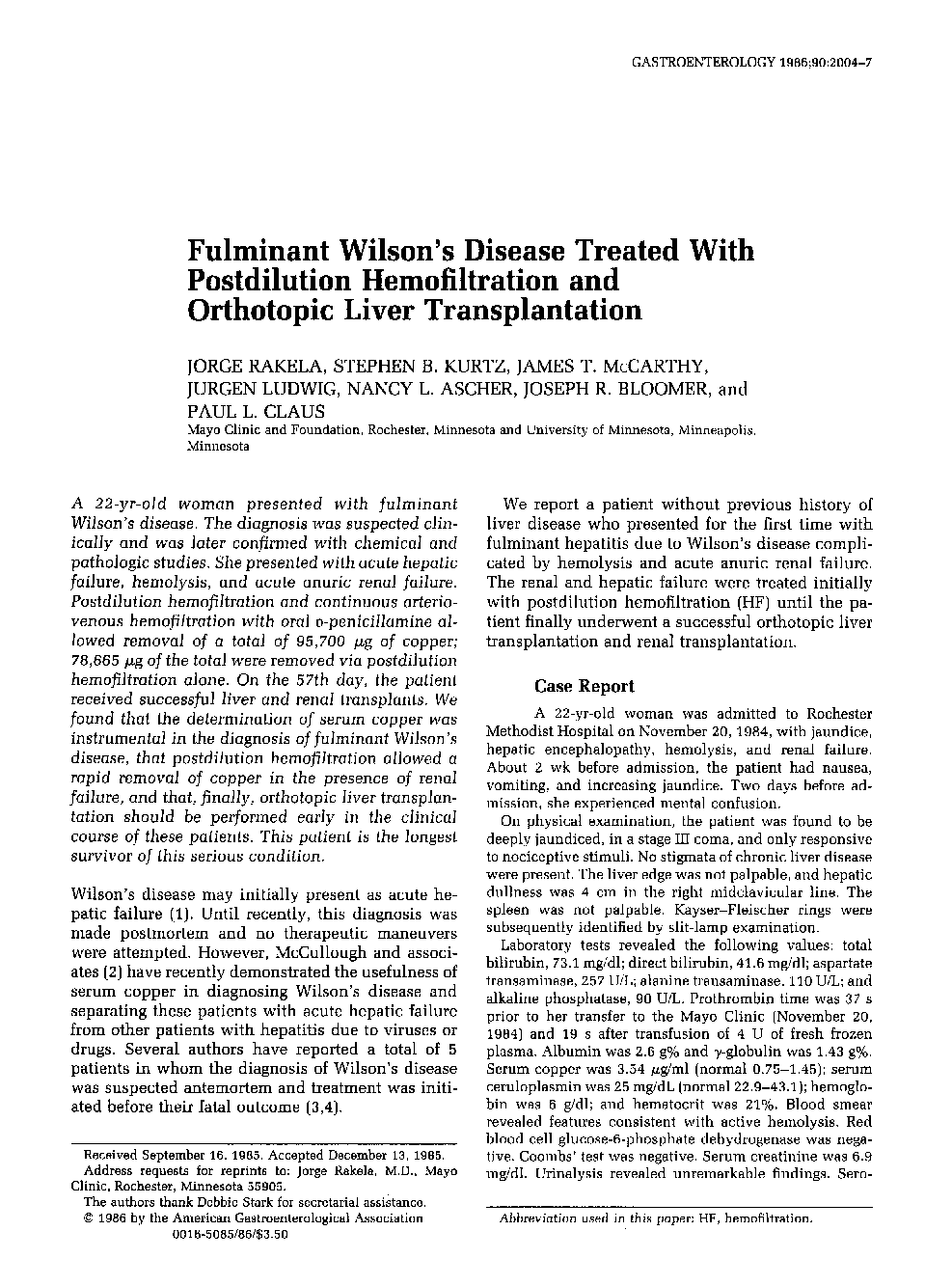| Article ID | Journal | Published Year | Pages | File Type |
|---|---|---|---|---|
| 3300767 | Gastroenterology | 2007 | 4 Pages |
Abstract
A 22-yr-old woman presented with fulminant Wilson's disease. The diagnosis was suspected clinically and was later confirmed with chemical and pathologic studies. She presented with acute hepatic failure, hemolysis, and acute anuric renal failure. Postdilution hemofiltration and continuous arteriovenous hemofiltration with oral d-penicillamine allowed removal of a total of 95,700 μg of copper; 78,665 μg of the total were removed via postdilution hemofiltration alone. On the 57th day, the patient received successful liver and renal transplants. We found that the determination of serum copper was instrumental in the diagnosis of fulminant Wilson's disease, that postdilution hemofiltration allowed a rapid removal of copper in the presence of renal failure, and that, finally, orthotopic liver transplantation should be performed early in the clinical course of these patients. This patient is the longest survivor of this serious condition.
Related Topics
Health Sciences
Medicine and Dentistry
Gastroenterology
Authors
Jorge Rakela, Stephen B. Kurtz, James T. McCarthy, Jurgen Ludwig, Nancy L. Ascher, Joseph R. Bloomer, Paul L. Claus,
